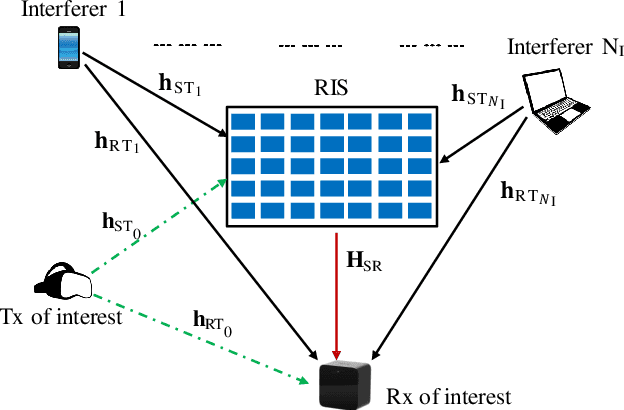Mohamed A. Abd-Elmagid
Robust Optimization of RIS in Terahertz under Extreme Molecular Re-radiation Manifestations
Oct 02, 2022



Abstract:Terahertz (THz) communication signals are susceptible to severe degradation because of the molecular interaction with the atmosphere in the form of subsequent absorption and re-radiation. Recently, reconfigurable intelligent surface (RIS) has emerged as a potential technology to assist in THz communications by boosting signal power or providing virtual line-of-sight paths. However, the re-radiated energy has either been modeled as a non-line-of-sight scattering component or as additive Gaussian noise in the literature. Since the precise characterization is still a work in progress, this paper presents the first comparative investigation of the performance of an RIS-aided THz system under these two extreme re-radiation models. In particular, we first develop a novel parametric channel model that encompasses both models of the re-radiation through a simple parameter change, and then utilize that to design a robust block-coordinate descent (BCD) algorithmic framework which maximizes a lower bound on channel capacity considering imperfect channel state information. In this framework, the original problem is split into two sub-problems: a) receive beamformer optimization, and b) RIS phase-shift optimization. We also analytically demonstrate the limited interference suppression capability of a passive RIS. Our numerical results also demonstrate that slightly better throughput is achieved when the re-radiation manifests as scattering.
 Add to Chrome
Add to Chrome Add to Firefox
Add to Firefox Add to Edge
Add to Edge